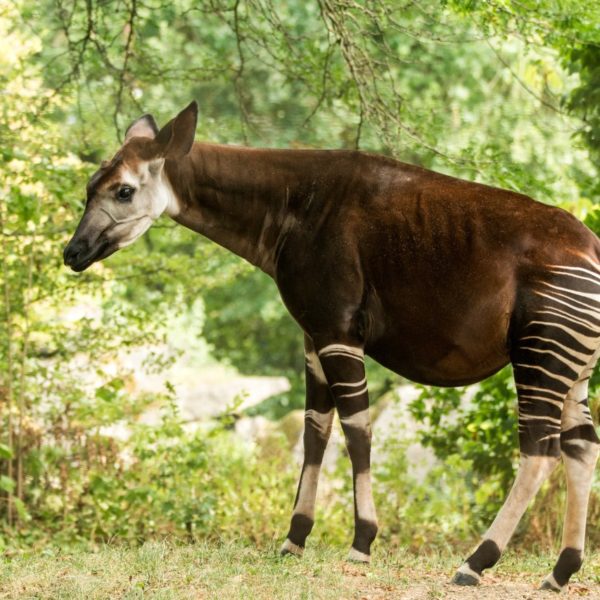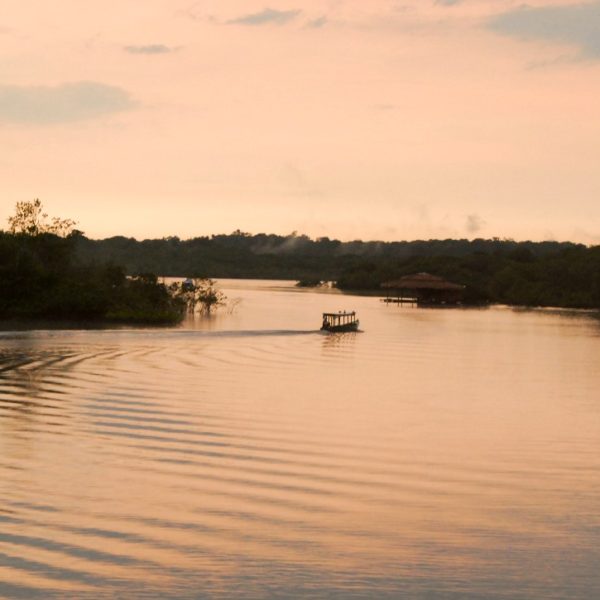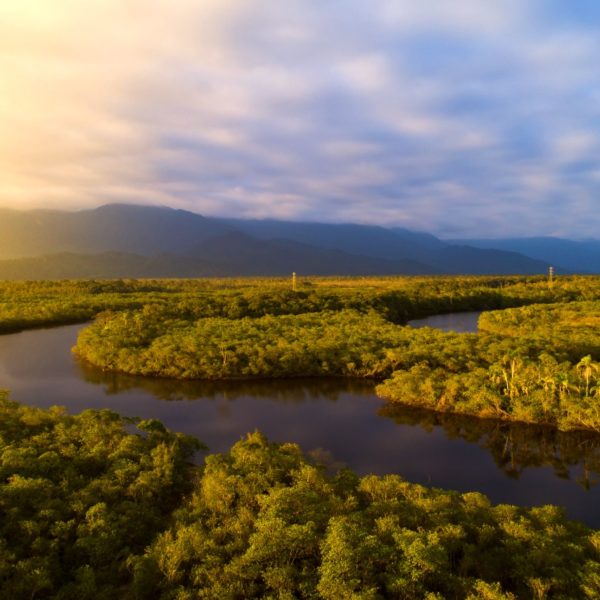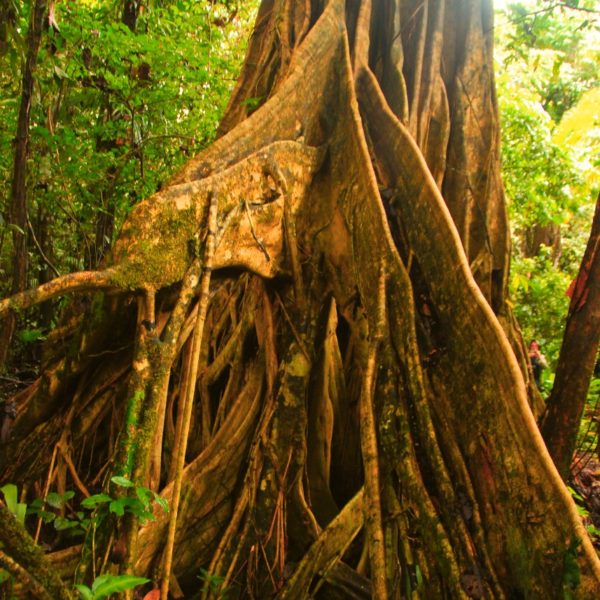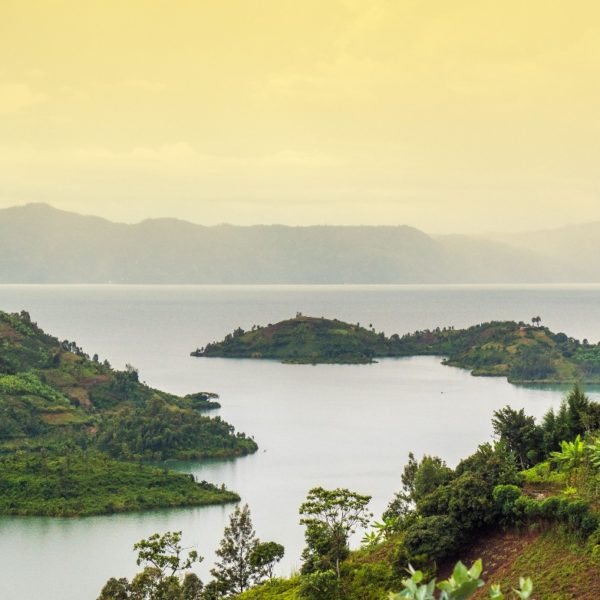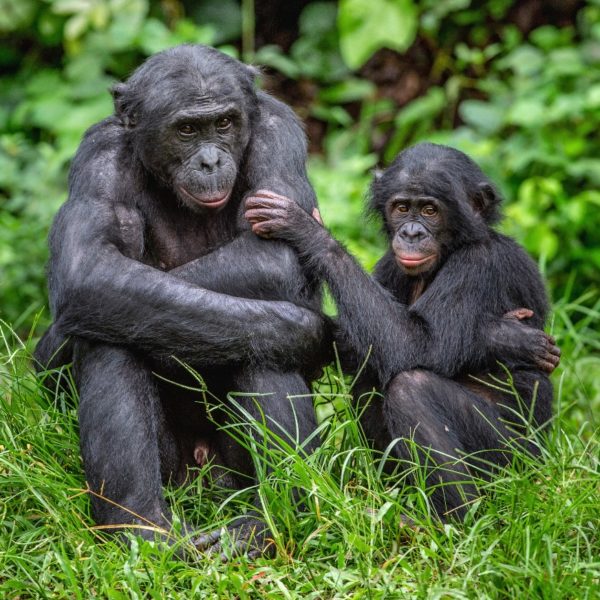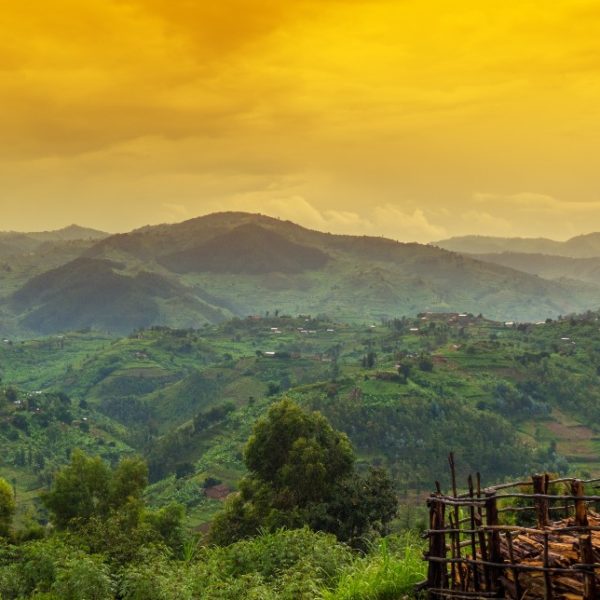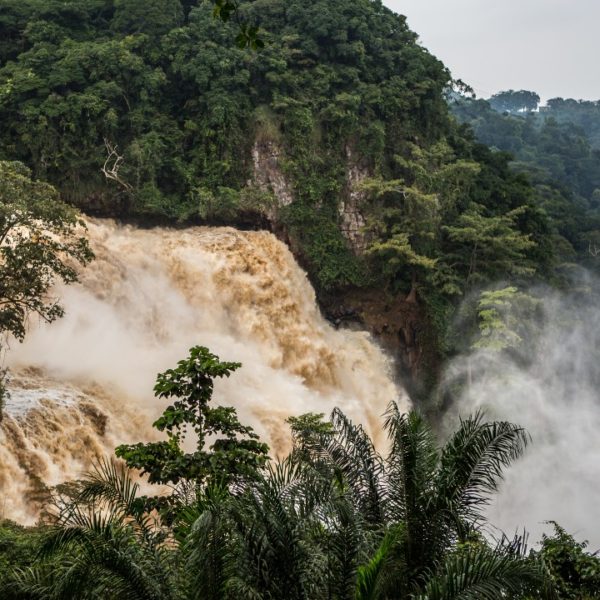The Democratic Republic of the Congo & Republic of the Congo – the Heart of Africa -15 days
We would like to invite you to an exceptional journey. DRC is the second country of Africa crossed by one of the longest rivers in the world. This is also a country of the second largest complex of rainforests in the world, second only to the Amazon forest. It is one of most precious but also least known ecosystems.
During our tour, we will try to see th the rainforests of the Congo Basin near Lake Tumba. We will also do our best to present to the travellers the life of the inhabitants of DRC, a country that is incredibly diverse from the ethnic and cultural points of view. Despite the unstable and often tragic history of DRC, trips to this country are possible and safe.
itinerary
Flights to Kinshasa usually take place in the afternoon and evening. After arrival, visa formalities. Transfer to the hotel and, after a short rest, an organisational meeting and dinner.
D.
After breakfast, we will set off to visit the capital of the Democratic Republic of the Congo. We will see the St. Anne’s Cathedral and the Mausoleum of President Laurent Kabila. We will visit the gallery called Symphonie des Arts. Then we will go to the Lola ya Bonobo sanctuary for bonobo chimpanzees, where we will spend some time with these exceptional primates. It will be possible to take a bath in the nearby lake, if anybody wants. Then we will return do Kinshasa where we will co to the crafts market called “the market of thieves”. In the evening, dinner and night rest at the hotel.
B. L. D.
In the morning, transfer to the airport and flight to Mbandaka – a capital of the Équateur province, located at the junction of the Ruki and Kongo Rivers. It was founded by Henry Morton Stanley in 1883. After arrival, we will start our sightseeing – we will visit the ethnographic museum and the “New Life” mission. Then we will walk through the city and the Eala botanic garden with its collection of over 4,000 plants growing on 371 hectares of land. In the evening, return to the city and dinner in a restaurant overlooking the majestic Congo River. Night rest at the hotel.
B.L.D.
After breakfast, we will leave Mbandaka and go to the town of Mooto founded as a mission in 1960 near Lake Tumba. After arrival, preparation of the campsite which will be our base for exploring the area. We will sleep on the campsite in tents.
B.L.D.
Whole-day visit to the Lake Tumba area. In the afternoon, we will go to local villages to see the daily living of their inhabitants. We will also take a hike through the woods with local hunters, to get to know the secrets of the forests of the Congo River Basin. The hunters will show us medicinal, poisonous and edible plants. They will also present the traditional methods of hunting used by Pygmies. In the afternoon, visit to a village of Pygmies, where we will have time for taking a closer look at the customs and culture of the inhabitants and listen to traditional songs. Return to the camping site and night rest in tents.
B.L.D.
After breakfast, we will go to the Bokotè village where we will start our cruise on traditional wooden boats through a forest flooded by the Congo River tributaries. It is a unique forest formation, one of the most precious natural habitats in the region. During the cruise, we will see many species of birds and insects. We will end the cruise in the Bokotè village where we will sleep in tents. In the evening, there will be some time for social integration with the village inhabitants at a bonfire. For dinner, we will have a Pygmy dish. We will sleep in tents.
B.L.D.
Po breakfast, we will set off for the town of Bikoro located at Lake Tumba. There we will start a cruise on boats on the lake, where more than 114 fish species have been described so far. We will visit the coastal forest habitats. We will have some time for watching numerous bird species. Return to Bikoro where we will visit one of the missions and the school. We will sleep in tents.
After breakfast, we will leave Bikoro and head to Mabali. En route we will stop at the natural rubber plantation, for a short visit and some rest. Transfer to Mabali in the early afternoon. After arrival, we will visit the research centre that conducts studies on the biodiversity of Central Africa. The Congo Basin is the second largest complex of rainforests in the world, second only to the Amazon forest. At the same time, its highly biodiverse fauna and flora is probably least known. We will take a hike through the primeval forest that has never been logged. We will see the largest trees that are present in the area of the Congo River catchment area. Dinner near Lake Tumba under the tents. In the evening, an optional walk through the rainforest. This may prove to be a very exciting encounter with the fascinating nature of Central Africa.
B.L.D.
Before breakfast, an optional photographic and birdwatching trip through the forest and Tumba Lake area. In the morning, we will start our return journey to the town of Mbadaka. After arrival, rest at the hotel after the hardships of the forest expedition. Dinner in one of local restaurants. Night rest at the hotel.
B.L.D.
After breakfast, a shopping trip to the souvenir market and an optional short cruise on the Congo River. Depending on the departure time, transfer to the airport and flight to Kinshasa. After arrival, check in at the hotel, and then dinner
B.L.D.
In the morning, we will leave Kinshasa and drive south-east to the Zongo Falls. On our way back, we will return to Kisantu where we will visit the botanical garden founded in 1892 by the Jesuit Brother Justin Gillet. The botanical garden with a surface area of over 225 hectares, there are more than 4,000 plant species, including 92 species of palms from all regions of the Democratic Republic of the Congo. Dinner in one of local restaurants. Night rest in wooden lodges.
B.L.D.
After breakfast, we will visit viewpoints with a magnificent view of the Zongo Falls, whose height is up to 65 metres and water flow rate is 630 m3/s. If anybody wants, it will be possible to take a bath in the natural pools of water surrounded by lush tropical vegetation. In the afternoon, we will arrive in Kinshasa. After arrival in Kinshasa, transfer to the airport and departure.
For the travellers who will continue the trip to the Republic of the Congo, dinner and night rest at the hotel in Kinshasa.
B.L./D.
After breakfast, a drive to the river harbour, and after immigration formalities a fairy cruise on the Congo River to the capital of the Republic of the Congo – Brazzaville. Then visit of the city, transfer to the hotel, and dinner.
B.L.D.
After breakfast, we will set off to the north to the reserve and centre for studies on lowland gorillas called Lesio Louna. We will visit the research centre and have a close encounter with this fascinating species of great apes. Then we will set out for Ibobukro where we will stay for the night in bungalows. In the afternoon, we will have time for taking a swim in the blue lake. Night rest in bungalows.
B.L.D.
Early in the morning, after breakfast, we will start the day from an attempt to see the animals around the campsite, and then we will board a pirogue to travel on the Louna and Léfini Rivers to the places called Abio and Ipope. On this day, we will also have an opportunity to discover the magnificent landscapes of the savannah and forest, with the possibility to meet hippos, gorillas and many bird species. After dinner, return to Brazzaville and transfer to the airport.
Practical information
- the length of the tour : 15 or 12 days in Africa;
- start of the trip: Kinshasa – DRC
- end of the trip: Kinshasa / Brazzaville DRC/ RC
- the highlights of this expeditionThe highlight of the tour will be the visit to one of the most interesting regions of Africa from the natural and cultural point of view. We will visit the second largest rainforest in the world, after the Amazonian one. We will try to present closer to the travellers the contemporary life and traditions of the inhabitants representing different ethnic groups, whom we will visit in the area of Lake Tumba. Those of the trip participants who will decide to extend the tour by the Republic of Congo will go to the Lesio Louna Reserve where they will have an opportunity to meet lowland gorillas and many other animal species. We also plan a cruise on one of the largest rivers of the world – the Congo River – and to see the photogenic Zongo Falls.
The tour will be an expedition to one of the regions of Africa least visited by tourists. It will be oriented on nature, cultural and sightseeing tourism. Because of the special nature of the visited places and of the expedition features, the travellers are required to be physically and mentally fit. The planned sleeping in tents near Lake Tumba and driving on poor quality roads may cause considerable fatigue and discomfort. Other difficulties include temperatures above +30°C, high humidity of the air and often intense rainfalls. In Kinshasa and Mbadaka, accommodation is planned in hotels. Boat cruises and hikes in the rainforest are planned in the itinerary.
You should bear in mind that the Democratic Republic of the Congo is a country of many cultures and traditions, having a special and unique character. Despite the history of these countries, which was at times tragic and difficult, trips to the Democratic Republic of the Congo and Republic of the Congo are possible and safe, provided they are conducted reasonably and with the necessary precautions.
Depending on the political situation, the length of the tour and the order of visited places may change. In a situation of a serious threat to travellers’ safety, the tour may be cancelled. We will keep you updated as to whether the expedition is possible.
Your passport must be valid for at least 6 months after the planned end of the tour.
Before departure, you must obtain tourist visas in the nearest embassy of the Democratic Republic of the Congo and Republic of the Congo (travellers who will extend their trip).
To obtain a visa, you may use the services of visa agents or the help of BTP Adventure.
You should take with you for the trip a photocopy of your passport (the photo page) and an additional ID document.
- Take with you for the trip the yellow vaccination booklet with certified valid yellow fever vaccination – it is impossible to enter the Democratic Republic of the Congo and the Republic of the Congo without this document and vaccination.
- Before departure, we recommend a consultation with a family physician and a tropical medicine specialist.
- Vaccination against yellow fever, tetanus, diphtheria, viral hepatitis A and B, meningococci and typhus is recommended.
- Malaria prevention measures (Malarone or Lariam) are necessary.
- In some regions, there is a risk of ebola but curently it is very low.
- There is a risk of dengue and tuberculosis at the places planned to be visited during the trip.
- We recommend visiting https://travelhealthpro.org.uk/countries.
- During our expedition, we will drink only bottled water. You should avoid ice in your beverages and eating raw or undercooked foods. In the Democratic Republic of the Congo and Republic of the Congo it is possible to obtain medical care only in Kinshasa and Brazzaville.
- The cost of a private medical visit is usually over USD 100, and a day of hospitalisation costs between USD 100 and 200.
- Because of difficult travelling and accommodation conditions and particularities of the country, good physical fitness is necessary. Furthermore, your patience will definitely be tested and you should prepare for hardships of long journeys, lassitude and discomfort.
- Please take with you a first aid kit and a sufficient supply of your regular (prescription) medicines, if any. Some useful contents of the first aid kit:
- insect repellents – absolutely necessary
- medicines for malaria prevention
- high sun protection cream (recommended SPF 50)
- disinfectants, wound dressing materials
- analgesics and antipyretics
- antibiotics, as a precaution
- anti-diarrhoeals, electrolytes and vitamins
Currently, the Democratic Republic of the Congo is moderately stable. In some regions of the country, there is a risk of armed conflict and terrorist threat. However, we design our itineraries so as to avoid places that are potentially dangerous (the north-eastern region – border area with the Central African Republic and South Sudan – and region the south-eastern region – border area with the Angolan Enclave of Cabinda).
It is very important to stay vigilant at such places as markets and crowded streets, because of pickpockets and rare robberies. You should avoid walking alone, especially after dark.
Owing to the good relations we have with local contractors, we keep following the news to be aware of any potential threats and safety risks. We also recommend you to read the latest news on the Foreign & Commonwealth Office website:
https://www.gov.uk/foreign-travel-advice.
During the tour, please take seriously the instructions of our contractors, guides and tour leader.
It is very important to respect local customs and abide by local laws and regulations. You will receive the necessary information on an on-going-basis from your local guides and the tour leader.
It is strictly prohibited to take photos and make video recordings at military and police installations and at airports. You are also not allowed to take photos where people in military/police uniforms are present!!!
Photographing people is possible only when they expressly agree to it. Taking pictures when the subjects have not allowed it often ends up with escalating aggressive behaviours.
The legal tender in the Democratic Republic of the Congo is the Congolese franc. The legal tender in the Republic of Congo is the Central African franc. Currency exchange is possible at the airport and in banks. Using payment cards is possible only in hotels and in restaurants in capitals of both countries. Caution should be exercised because of frequent data theft scams. The best foreign exchange rate is for euros and US dollars. UK pounds are not generally exchangeable. Apart from big cities, payments are possible only in local currencies.
For current foreign exchange rates see www.xe.com or install xe.com on your phone.
In the Democratic Republic of the Congo and Republic of the Congo, the official language is French. Several dozen local languages are also spoken. For self-guided tours, you must speak French and English.
The Democratic Republic of the Congo and the Republic of the Congo are multi-ethnic and multi-religious countries. The vast majority of the inhabitants are Christians belonging mainly to the Catholic Church and to many Protestant churches. We will be able to observe diverse traditions of the individual ethnic groups and local communities.
It is very important to respect local customs and abide by local laws. You will receive the relevant information from your local guide or the tour leader.
The tour dates are proposed in periods of the best possible weather conditions at the sites included in the itinerary. The best time for trips to the Democratic Republic of the Congo and Republic of the Congo is the period between June and October. Temperatures are up to +30°C during the day and +20°C at night. High air humidity and rainfalls, sometimes heavy, should be expected. A considerable difficulty is the bad quality of roads, especially the mud after rainfalls.
For detailed information see https://www.meteoblue.com/en.
Mobile network coverage is available in most towns and villages. In areas outside of large towns, mobile network services are practically unavailable. Purchase of a local SIM-card is complicated and of little benefit. Before the trip, please enquire with your mobile network operator whether they have a contract signed with operators in the Democratic Republic of the Congo and Republic of the Congo and what the prices of call and SMS roaming are. To avoid a nasty surprise, we recommend disabling mobile data usage.
Wi-Fi is available only in hotels in the capitals of both countries.
Additionally, we recommend taking a capacious power bank, solar charger or car charger. In national parks and in the course of car rides, it will be possible to charge electronic equipment only from vehicle power supplies.
The Democratic Republic of the Congo and Republic of the Congo:
power sockets of type C and E. Voltage 220 V, frequency 50 Hz.
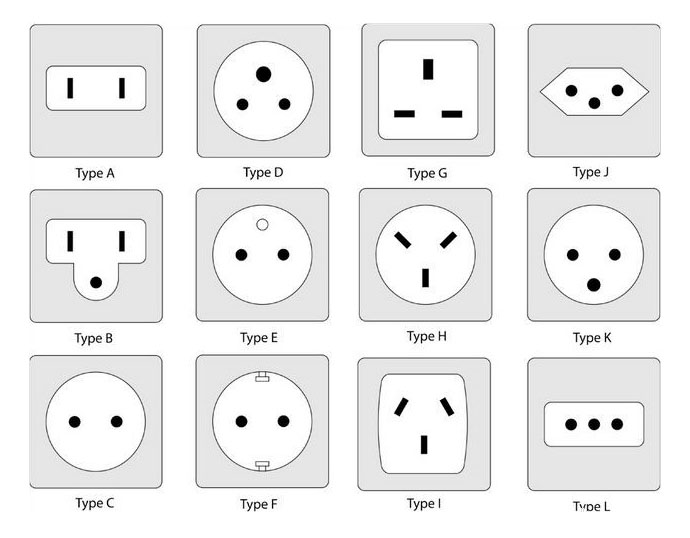
For climatic and cultural reasons, loose garments will be most appropriate: long trousers, long skirts, long-sleeved shirts, which can be easily washed and will quickly dry. The most comfortable footwear for the tour will be lightweight boots. Palladium brand boots are recommended. You may walk in open sandals but in towns and desert regions this may be uncomfortable because of stones, thorny plants and sharp grasses. Light hiking boots may prove useful. The following are worth taking:
- aluminium sleeping pad or light self-inflating mat and thin summer sleeping bag; we provide a mattress during the trip but taking your own pad or mat will improve your sleeping comfort
- sachet for documents and money
- wet wipes for body cleaning and antibacterial gels
- dry shampoo
- polar fleece jacket or warmer blouse, especially useful at evening and night times
- head cover and sunglasses – mandatory, the sun is no joke!
- comfortable summer clothes, useful during practically the whole trip
- light T-shirts/shirts
- useful odds and ends: torch, Swiss Army knife, sewing kit (usually is not needed but is not heavy and does not take much place), chargers, mug (for special occasions); inflatable neck pillow, useful on the plane and during car rides; small wallet for the local currency; books to pass the time on flights and car rides
Price
Price: £ 3990 p/p
During the tour, we will we will travel by passenger cars or minibuses, and also, if necessary, by off-road vehicles. Moreover, the itinerary includes a domestic flight Kinshasa – Mbandaka – Kinshasa. During our trips, cruises on motor and rowing boats are envisaged on Lake Tumba and the Congo River. For the travellers who will extend the trip by the Republic of the Congo, a cruise by ferry from Kinshasa to Brazzaville is envisaged. Speed depends on the road surface conditions, terrain characteristics and number and length of stops.
We are not able to guarantee a uniform accommodation standard at each of the planned sites during the stay in the Democratic Republic of the Congo and Republic of the Congo. Our priorities are your comfort, appropriate location, character of the site and historical, cultural and natural values. We always place emphasis on the support of local community when selecting the sites for our accommodation. In general, rooms will be assigned on the assumption of two people sharing a twin room (rooms with individual bathrooms). The surcharges for single rooms are quoted in the “Price” section. During our tour, we plan accommodation in capitals of both countries in 4- and 3-star hotels, depending on availability.
- During our stay near the Lake Tumba we will sleep in tents which we will put up at the camping sites with the help of our guides. In larger cities and in capitals of both countries we will stay in hotels.
- In the area of the Zonga Falls and in the Lesio Louna Reserve, accommodation in lodges with individual bathrooms is planned.
Meals are included in the tour price, as specified in the itinerary. B – breakfast, L – lunch, D – dinner. In most places we will visit, shops and markets are well stocked but prices of some goods – especially the imported ones – may be higher than in most European countries. The cuisine of both countries is extremely varied, reflecting the local particularities and cultures of the individual regions.
For information about the local costs of living see https://www.numbeo.com/cost-of-living/.
Local and special guides in National Parks
All entrance fees and permits to visit national parks and reserves in the itinerary
Trip preparation, visa mediation, the invitation necessary to obtain a visa
Costs of the main flight to Kinshasa (DRC) and from Kinshasa (DRC) or Brazzaville (RC )
Costs of flight tickets are not covered by the tour price. BTP Adventure does not directly arrange and buy tickets for international flights. However, we may suggest the best connections and airlines. For this purpose, contact us by e-mail or call us.
Visa for the Democratic Republic of the Congo
Visa for the Republic of the Congo if the itinerary is extended
Insurance is not covered by the tour price. Having valid insurance is a condition for taking part in the trip. We recommend taking out insurance that will be appropriate for the planned itinerary and for your individual state of health and needs. Please send us the proof of your insurance contract.
You can purchase insurance on your own on the website of Axa or any other insurance company: https://www.axa.co.uk/travel-insurance/.
BTP Adventure may help you obtain adequate insurance cover. If you want our help, please contact us.
The price does not includes the cost of tips and porters’ fees.
Meals other than those listed in the final itinerary.
Surcharge for a single room and a single tent: 550 £.
supplementary payment for the additional accommodation In the case of arrival or departure on a different date,
We will keep updating the detailed information on the safety and final itinerary of the tour. Before you decide to submit the booking form, please learn about the current political and sanitary situation in the Democratic Republic of the Congo end Republic of Congo, especially at the places on the itinerary of our tour.
The planned expedition is an exclusive proposal prepared on the basis of our experience and knowledge of the local peculiarities and major sightseeing attractions of the Democratic Republic of the Congo end Republic of Cong.
We are committed to ensure the best possible and safe and, as far as feasible, comfortable travelling through this rarely visited and extremely interesting country which is the Democratic Republic of the Congo end Republic of Cong.
Depending on the political situation, the length of the tour and the order of visited places may change. In a situation of a serious threat to travellers’ safety, the tour may be cancelled. We will keep you updated as to whether the expedition is possible.
The Democratic Republic of the Congo end Republic of Congo tour may be combined with the trips to Nigeria, Mali, Liberia, Niger or Cameroon. If you are interested, please contact the office.
With any questions please contact BTP ADVENTURE
3990 £ Per Person
It is possible to shorten the tour to 12 days Democratic Republic of the Congo only
You may extend the tour in the Democratic Republic of the Congo by the Virunga National Park or a trip to the south of DRC, to the area of Lubumbashi Katanga Province – for this purpose, please contact the office.
The trip can be combined with an expedition to the Angola Malawi, Zambia, Nigeria and Uganda. for this purpose, please contact the office.

